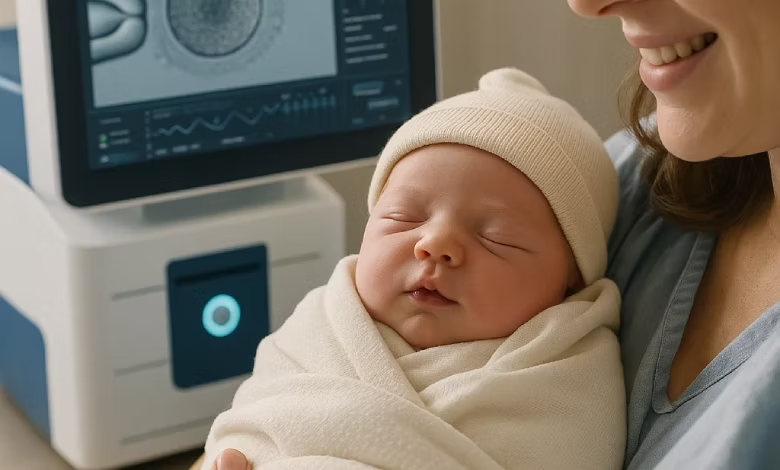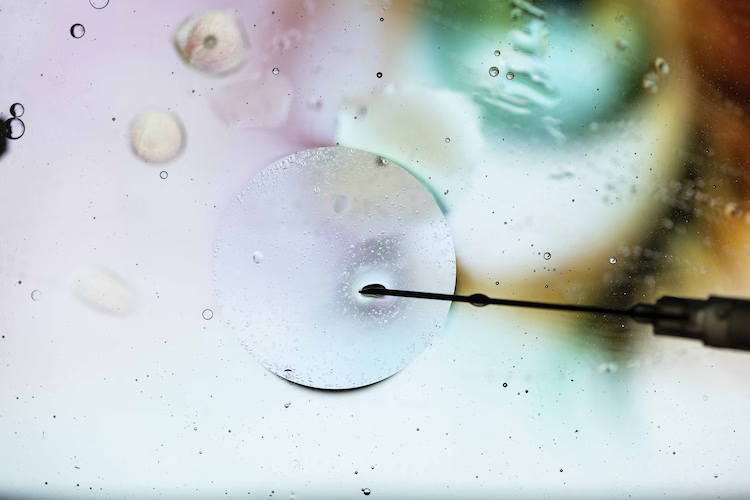AI Makes History: World’s first baby born using AI-assisted IVF system

In a groundbreaking development, the world’s first baby has been born through a fully automated IVF system that uses artificial intelligence to perform fertilisation without human intervention.
Unlike the traditional intracytoplasmic sperm injection (ICSI) method—which involves manually injecting a single sperm into an egg—this AI-assisted system automates the entire 23-step process. ICSI has been a standard in IVF since the 1990s but depends heavily on skilled embryologists, whose performance can vary due to fatigue and technique.
This new automated method was developed by a team from Conceivable Life Sciences, based in New York and Guadalajara, Mexico, and led by embryologist Dr. Jacques Cohen. Their work, published in Reproductive Biomedicine Online, marks a significant step forward in reproductive technology.
The historic birth took place at Hope IVF Mexico in Guadalajara. A 40-year-old woman undergoing treatment with donor eggs—after an earlier failed IVF attempt—became pregnant using the AI-driven process. Out of five eggs, four were successfully fertilised, and one embryo matured into a viable blastocyst. It was later frozen, thawed, and implanted, leading to the birth of a healthy baby boy.

The system not only selected the sperm using AI but also immobilised it with a laser and injected it into the egg—all autonomously. According to Dr. Cohen, the technology brings consistency to the lab environment, reduces stress on staff, and may improve outcomes.
Although the process currently takes nearly 10 minutes per egg—slightly longer than manual ICSI—researchers, including Professor Mendizabal-Ruiz, believe future iterations will be faster. Dr. Chavez-Badiola emphasized that this is the first system to automate every part of the ICSI process, including AI-based sperm selection.
While additional studies are needed to validate safety and effectiveness across broader patient groups, experts consider this birth a major leap forward for automated reproductive care. Other parts of IVF, like embryo monitoring and sperm preparation, have already embraced automation, and this innovation could lead to even greater precision in fertility treatments.
What is an IVF System?
In-vitro fertilization (IVF) is a medical procedure used to help individuals and couples conceive a child. It involves combining an egg and sperm outside the body in a laboratory setting. Once fertilised, the embryo is cultured for a few days before being transferred into the uterus.
A standard IVF system typically includes multiple steps such as hormone stimulation, egg retrieval, sperm collection, fertilisation (often using ICSI), embryo development, and transfer. The newly developed AI-assisted IVF system automates many of these steps, particularly fertilisation, with the goal of improving consistency, accuracy, and success rates.




